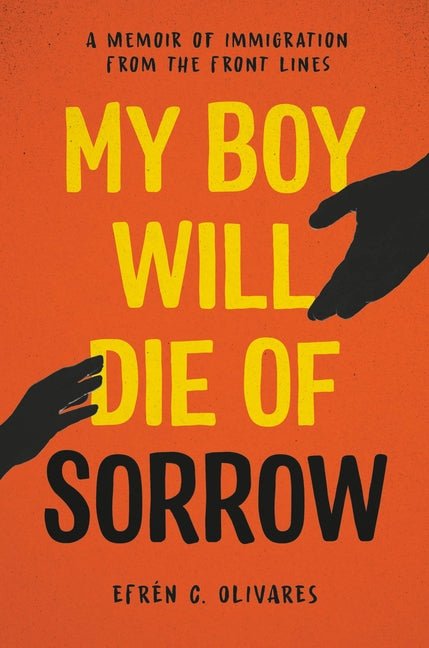Grand Central Publishing
My Boy Will Die of Sorrow: A Memoir of Immigration from the Front Lines
Couldn't load pickup availability
INTERNATIONAL LATINO BOOK AWARD WINNER - The Raul Yzaguirre Best Political/Current Affairs Book
This deeply personal perspective from a human rights lawyer--whose work on the front lines of the fight against family separations in South Texas intertwines with his own story of immigrating to the United States at thirteen--reframes the United States' history as a nation of immigrants but also a nation against immigrants. In the summer of 2018, Efrén C. Olivares found himself representing hundreds of immigrant families when Zero Tolerance separated thousands of children from their parents at the U.S.-Mexico border. Twenty-five years earlier, he had been separated from his own father for several years when he migrated to the U.S. to work. Their family was eventually reunited in Texas, where Efrén and his brother went to high school and learned a new language and culture.
By sharing these gripping family separation stories alongside his own, Olivares gives voice to immigrants who have been punished and silenced for seeking safety and opportunity. Through him we meet Mario and his daughter Oralia, Viviana and her son Sandro, Patricia and her son Alessandro, and many others. We see how the principles that ostensibly bind the U.S. together fall apart at its borders.
My Boy Will Die of Sorrow reflects on the immigrant experience then and now, on what separations do to families, and how the act of separation itself adds another layer to the immigrant identity. Our concern for fellow human beings who live at the margins of our society--at the border, literally and figuratively--is shaped by how we view ourselves in relation both to our fellow citizens and to immigrants. He discusses not only law and immigration policy in accessible terms, but also makes the case for how this hostility is nothing new: children were put in cages when coming through Ellis Island, and Japanese Americans were forcibly separated from their families and interned during WWII. By examining his personal story and the stories of the families he represents side by side, Olivares meaningfully engages readers with their assumptions about what nationhood means in America and challenges us to question our own empathy and compassion.
Share
Book Details
ISBN:
9780306847288
EAN:
9780306847288
Binding:
Hardcover
Pages:
320
Authors:
Efrén C Olivares
Publisher:
Grand Central Publishing
Published Date: 2022-12-07
View full details
To put it in simple terms It’s giving pick-me. Would not recommend 0/10 :)
This book is dry, sterile and gives no real insight into the lives of immigrants. Instead it’s written from the perspective of a wealthy upper class immigrant who doesn’t really understand the nuances of immigrants.
Important read, told from an interesting perspective
The book I read first as borrowed from the library. I liked it so much I wanted to give it to a friend. I admire the author greatly.
Thank you to Hachette Books for a finished copy of My Boy Will Die of Sorrow: A Memoir of Immigration from the Front Lines, available everywhere now.Told from the perspective of a human rights lawyer in Texas, this deeply personal account gives voice to the families impacted by the separations at the border while reflecting on his own personal immigrant experience. 25 years earlier, the writer's father frequently traveled between Mexico and Texas for work, leaving the family behind for stretches of time. Eventually, the family is able to settle permanently in Texas, where the writer and his brother learned a new language and culture. The writer himself remarks on the various privileges he had access to that differentiated his experience from others crossing the border. As he points out, his family was fortunate to be moving to pursue better economic opportunities and fleeing from violence, death threats, or persecution. Other families, like Mario and his daughter Oralia, Viviana and her son Sandro, Patricia and her son Alessandro, had no choice but to leave their homelands and risk their lives in pursuit of safety. Instead, the families end up brutally separated under the Zero Tolerance policy. As the writer details, there is nothing new about the harshness of this policy. Interwoven with historical data and background, the writer asks us to re-consider the United States' attitude towards immigrants and instead, consider the possibility that it's not the land of the free for everyone either.


